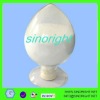- Organic Intermediate[9]
- Chemical Auxiliary Agent[1]
- Organic Acid[1]
- Amine[1]
- Sulphate[3]
- Other Organic Chemical[1]
- Alcohol & Hydroxybenzene & Ether[1]
- Oxide[1]
- Catalyst[1]
- Nitrate[2]
- Carbonate[1]
- Chloride[2]
- Alkali[1]
- Pigment[1]
- Dyestuffs[10]
- Food Additives[10]
- Bakery Decoration Ingredients[1]
- Feed Additives[9]
- Animal Feed[2]
- Veterinary Medicine[4]
- Other Chemicals[1]
- Pharmaceutical[10]
- Dental Equipments[10]
- Kitchen Knives[1]
- Pumps[1]
- Toilet Plungers[1]
- Electrical Ceramics[1]
- Nitrogen Fertilizer[1]
- Electric Screwdriver[10]
- Cooling System[4]
- Plastic Film[10]
- Contact Person : Mr. Du Harry
- Company Name : Sinoright International Trade Co., Ltd.
- Tel : 0086-411-39210844
- Fax : 0086-411-39210855
- Address : Liaoning,Dalian,106# Taihua Building B Area Free Tax ZOne Dalian
- Country/Region : China
- Zip : 116600
Soda ash light
Soda ash lightPurity:99.2%
Soda ash is a versatile product that can be produced inexpensively and used for a number of different applications. Here are some basic facts about soda ash, and how the compound is used throughout the world every day.
More properly known as sodium carbonate, soda ash is a sodium salt of carbonic acid. Carrying an official registration as Na2CO3, soda ash normally comes into being as a crystallized heptahydrate that can be formed into a white powdery substance, known as a monohydrate. Soda ash can be manufactured from the ashes of a number of different types of plants, as well as created from the processing of ordinary table salt. The ability to manufacture soda ash in bulk ensures that the many goods produced with the compound will be available to us for many years to come.
Among the most common of products that can be produced using soda ash is good old-fashioned glass. When mixed in proportion with sand and calcium carbonate, heated to the right temperature and then cooled quickly, the end result will be a glass that has an excellent level of durability and clarity. Many homes made today will feature windowpanes that were created with soda ash as one of the key components in the mixture.
The home also benefits from the presence of soda ash in the laundry room. Considered to be a useful additive in home detergents, soda ash is often referred to as washing ash or washing soda. The addition of the soda ash prevents hard water from bonding with the detergent, allowing for a more even distribution of the cleaning agent during the washing cycle. In addition, soda ash has demonstrated an ability to help remove alcohol and grease stains from clothing, which can make the entire process of doing laundry a little less taxing.
Keeping the coffeepot clean and running well is another task that soda ash can help with. Over time, repeated use of a coffee maker or an espresso machine will result in buildup in the boiler section of the machines. Running a solution of soda ash and water through the system from time to time will help prevent the buildup and keep the machine functioning at optimum levels. This means your machine will last longer and produce a good tasting product consistently.
Other uses for soda ash in manufacturing and other industries continue to be added as the years go by. It is safe to say that all of us benefit from the production of soda ash in some manner, no matter what we do or where we live.
CERTIFICATE OF ANALYSIS
=========================
Name: Sodium Carbonate Light(SodaAsh)
This is to certify that the shipment identified below has been representatively sampled and analyzed according to quality control program of the manufacture. The results of these analysis are listed as below.
Item Specifications Result
Assay 99.2% min 99.61%
Chloride 0.7% max 0.30%
Iron 0.0033% max 0.00072%
Insoluble in water 0.03% max 0.0082%
Sulphate 0.03% max
We hereby certify that the above is true and correct.
Domestic use
In domestic use, it is used as a water softener during laundry. It competes with the ions magnesium and calcium in hard water and prevents them from bonding with the detergent being used. Without using washing soda, additional detergent is needed to soak up the magnesium and calcium ions. Called Washing Soda, Soda crystals, or Sal Soda in the detergent section of stores, it effectively removes oil, grease, and alcohol stains. Sodium carbonate is also used as a descaling agent in boilers such as found in coffee pots, espresso machines, etc.In dyeing with fiber-reactive dyes, sodium carbonate (often under a name such as soda ash fixative or soda ash activator) is used to ensure proper chemical bonding of the dye with the fibers, typically before dyeing (for tie dyes), mixed with the dye (for dye painting), or after dyeing (for immersion dyeing).Sodium carbonate is a powerful electrolyte, and is therefore used to speed up the decomposition of water in electrolysis.[edit] Other applicationsSodium carbonate is a food additive (E500) used as an acidity regulator, anti-caking agent, raising agent, and stabilizer. It is one of the components of kansui, a solution of alkaline salts used to give ramen noodles their characteristic flavor and texture.Sodium carbonate is also used in the production of sherbet powder. The cooling and fizzing sensation results from the endothermic reaction between sodium carbonate and a weak acid, commonly citric acid, releasing carbon dioxide gas, which occurs when the sherbet is moistened by saliva.As a food additive (E500), it is used in the production of snus (Swedish-style snuff) to stabilize the pH of the final product. In Sweden, snus is regulated as a food product because it is put into the mouth, requires pasteurization, and contains only ingredients that are approved as food additives.It is used widely[citation needed] in China, commonly sold as a edible alkali or food-grade alkali powder in most Chinese supermarkets. Added to water, it is used to replace lye-water in the crust of traditional Cantonese moon cakes, and in many other Chinese steamed buns and noodles.Soda ash light

